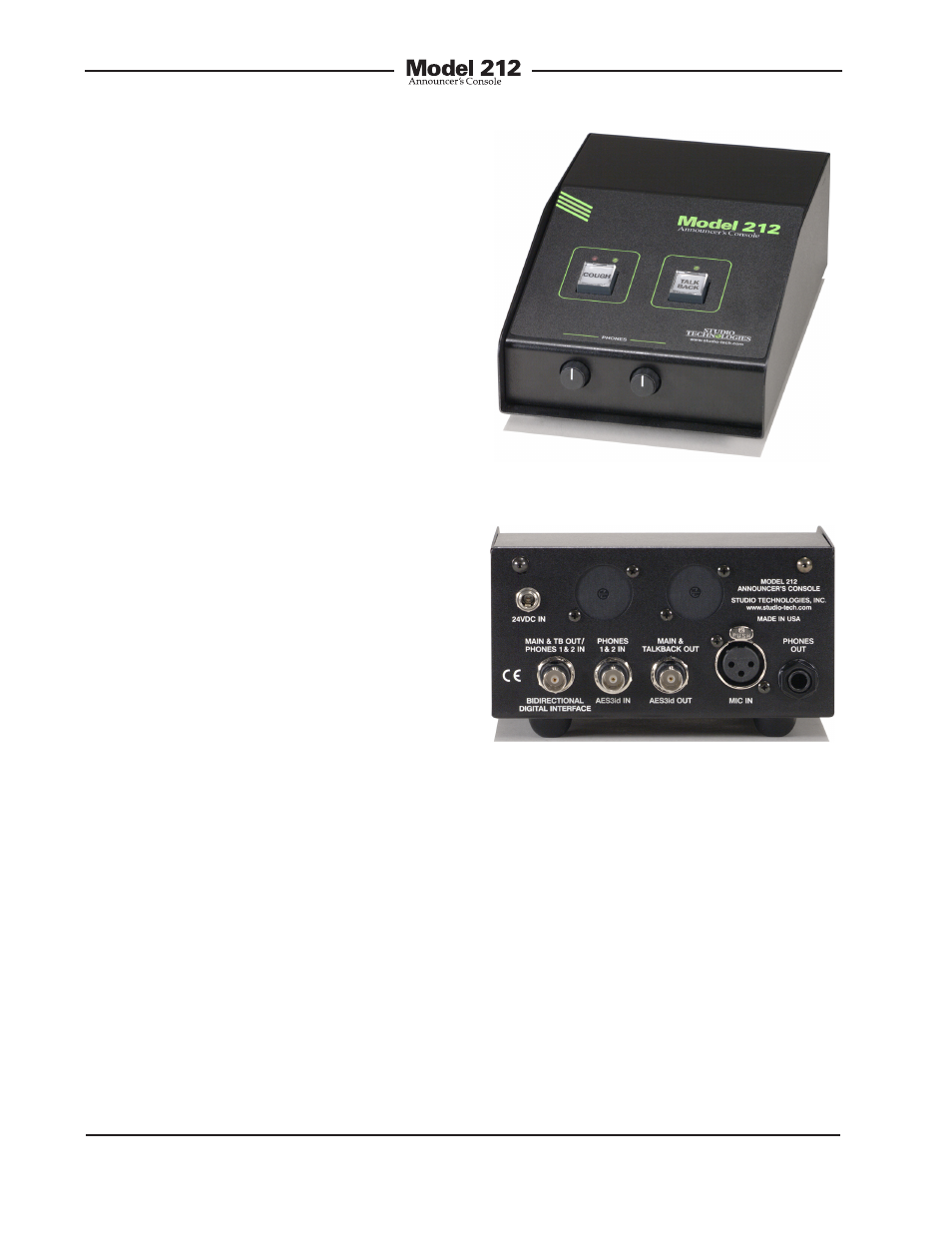Introduction, What this user guide covers, System overview – Studio Technologies 212 2013 User Manual
Page 5

Model 212 User Guide
Issue 5, May 2013
Studio Technologies, Inc.
Page 5
Figure 2. Model 212 back panel
Figure 1. Model 212 front panel
Introduction
What This User Guide Covers
This User Guide is designed to assist you
when installing, configuring, and using
Model 212 Announcer’s Consoles with
serial numbers of 01151 and later. Addition-
al background technical information is
also provided. A product block diagram
is included at the end of this guide.
System Overview
The Model 212 Announcer’s Console is
designed to serve as the audio control
center for announcers, commentators,
and production talent. With its digital audio
input and output resources the tabletop
unit is well suited for numerous applica-
tions including on-air television sports
broadcasting. The broadcast-standard
interfaces allow direct integration into con-
temporary “all digital” environments. The
Model 212 integrates all on-air, talkback,
and cue audio signal routing into one com-
pact system. Some of the unit’s highlights
include ease of use, configuration flexibility,
and sonic excellence.
Whether it’s microphone preamplifica-
tion, switching of main and talkback audio
signals, or the headphone output, superior
audio quality is maintained throughout. A
microprocessor provides the Model 212’s
logic power, allowing precise control of the
unit’s operation. A range of choices allows
the desired operating configuration to be
easily selected. While flexible, the user is
presented with an easy-to-use set of con-
trols and indicators. The digital audio inter-
faces are directly compatible with system
environments that use AES digital audio
signals as their preferred transmission
method. Unbalanced, 75 ohm interfaces
(AES3id) are standard with balanced 110
ohm (AES3) support also available.
While “all-digital” audio installations are
getting closer and closer to reality, ana-
log signals continue to play a role and
will probably do so for many years. As
such, the Model 212 also offers support
for analog audio inputs, main output and
talkback outputs functions. While requiring
the installation of optional connectors or
modules, these analog resources can help
complete specialized applications.
